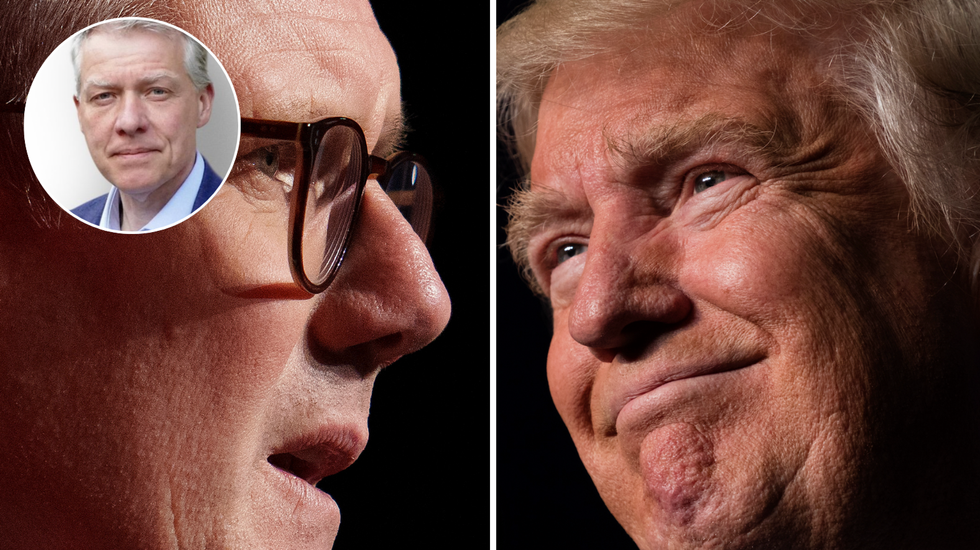President Trump assumes office at a time when UK/US diplomatic relations are in the poorest shape for decades. It’s not merely the obvious things such as Trump’s associate Elon Musk describing Keir Starmer as ‘evil’ on ‘X’ or even the Prime Minister’s foolish decision to appoint David Lammy as Foreign Secretary – a man who previously called Trump a neo-Nazi sympathiser.
That’s bad enough. Of even more concern is the extent to which the world view of the British and American elites is now totally at odds.
Whether it’s their outlook on trade, woke ideology, border control, defence, or the primacy of nation-states, the UK and American administrations have opposing views. And – apart from the challenges of the personalities involved – this represents a dangerous threat to the so-called special relationship.
Of course, UK/US relations have been through distinctly rocky periods in the past such as the Suez Crisis in 1956. Indeed, similar tensions emerged a decade later when Labour Prime Minister Harold Wilson – rightly as it happens – resisted President Lyndon Johnson’s demands that Britain enter the Vietnam War.
Despite their disagreements, Johnson and Wilson remained on good terms – the latter referring to their relationship as a ‘source of personal gratification to me’. I wonder if Starmer will be so fortunate. It’s one thing to disagree with Trump but quite another for Labour to blatantly send over 100 activists to the USA to campaign for Kamala Harris, his Democratic opponent in last year’s election. Did Labour not consider the realistic prospect that Trump might actually win? Perhaps not…
Trade policy represents the most acute gulf in the Anglo-American relationship. In his inauguration acceptance speech, President Trump declared that ‘America’s decline is over’ and pledged ‘we will tax foreigners to enrich our citizens’.
Trump was referring to his much-vaunted trade policy of applying higher tariffs on imports to the United States. And Trump’s policy is sound. Noting the damage unfettered and unfair ‘free trade’ has done to America’s manufacturing base the new administration is proposing firm and necessary action.
It has an industrial plan. The Trump/Vance team will prioritise domestic oil and gas production. Further, Trump is considering an increase in Biden’s 100 per cent tariff on Chinese electric vehicle imports (The EU applies tariffs of up to 48 per cent, and the UK applies none).
 The UK-US relationship has been rocky in the past, but the most dangerous era is coming – William Clouston
The UK-US relationship has been rocky in the past, but the most dangerous era is coming – William Clouston
Getty Images
In doing so, Trump may save the US car industry by keeping plants open in Michigan, Ohio, and Missouri. In contrast, Labour is too ideologically confused and too timid to apply any such tariff. In several years of listening to Starmer, I have never detected any coherent position on trade policy.
Apart from his dogmatic attachment to the EU’s single market – itself a chronic producer of trade deficits for the UK – perhaps it doesn’t exist.
In any event, the USA will apply a new form of economic nationalism come what may – including protectionism and import duties.
In so doing it will shrink the trade gap and successfully re-industrialise. That is the future. Alas, Starmer’s Government, like the Tories before them, is stuck with the ideas of the past – wedded as it is to a naive ‘open’ trade model which generates repeated trade deficits and the beggary which results. The US will grow. The UK will get poorer.
The UnHerd writer and former war reporter Aris Roussinos put it well, noting: “The British government is now diametrically opposed on every aspect of strategy, policy and ideology to its imperial overlord.”
How true – and how dangerous – to the urgent need for Britain to find its way in the world. Labour is lost. On trade policy, she should look to Trump and Vance for the way forward.